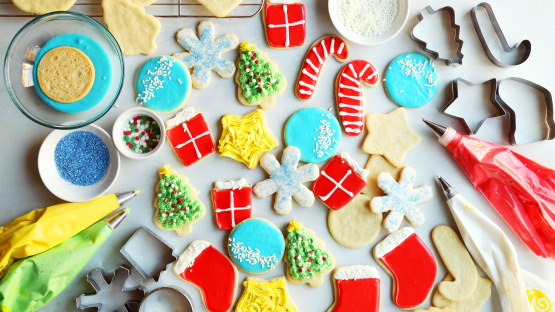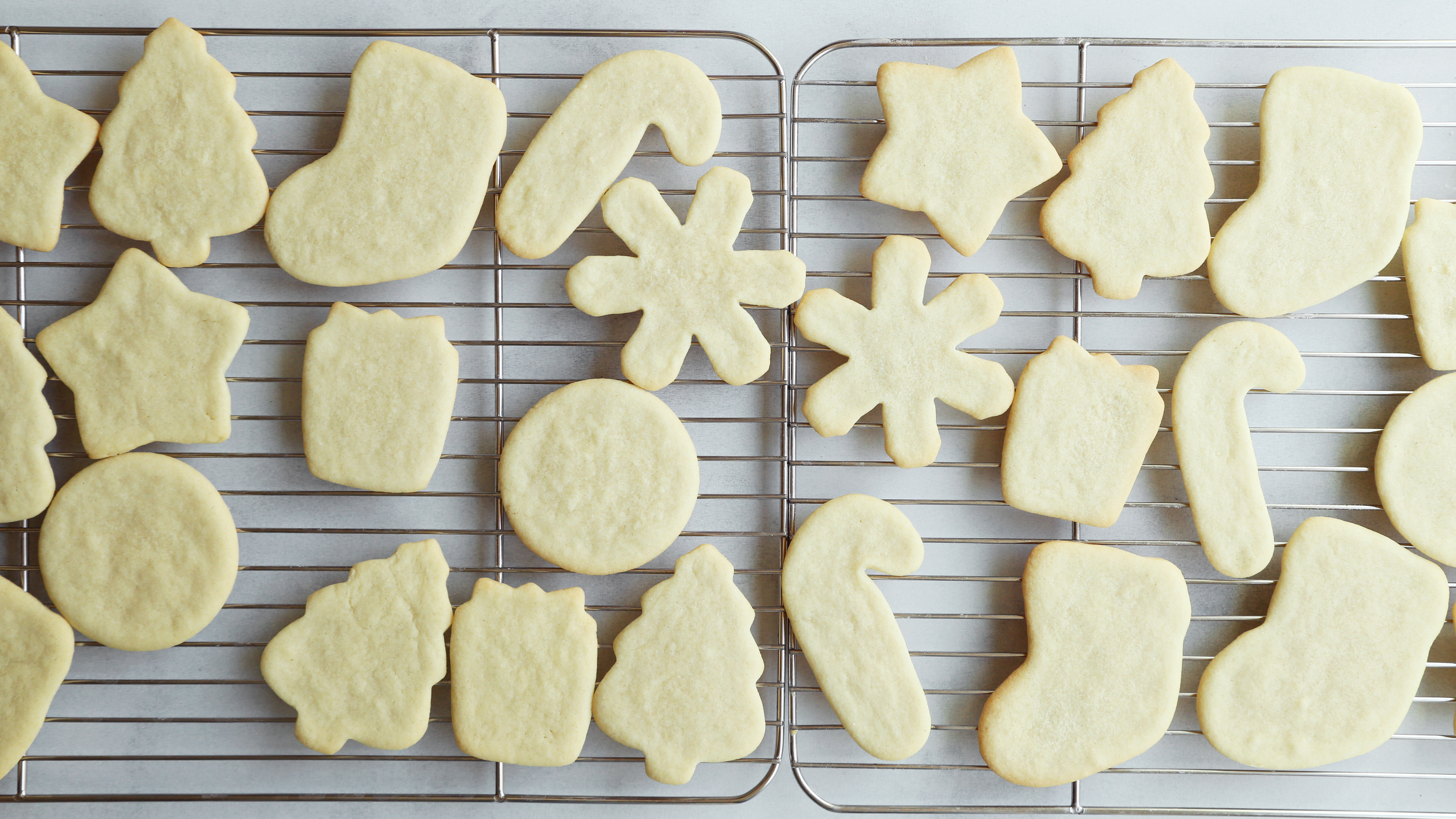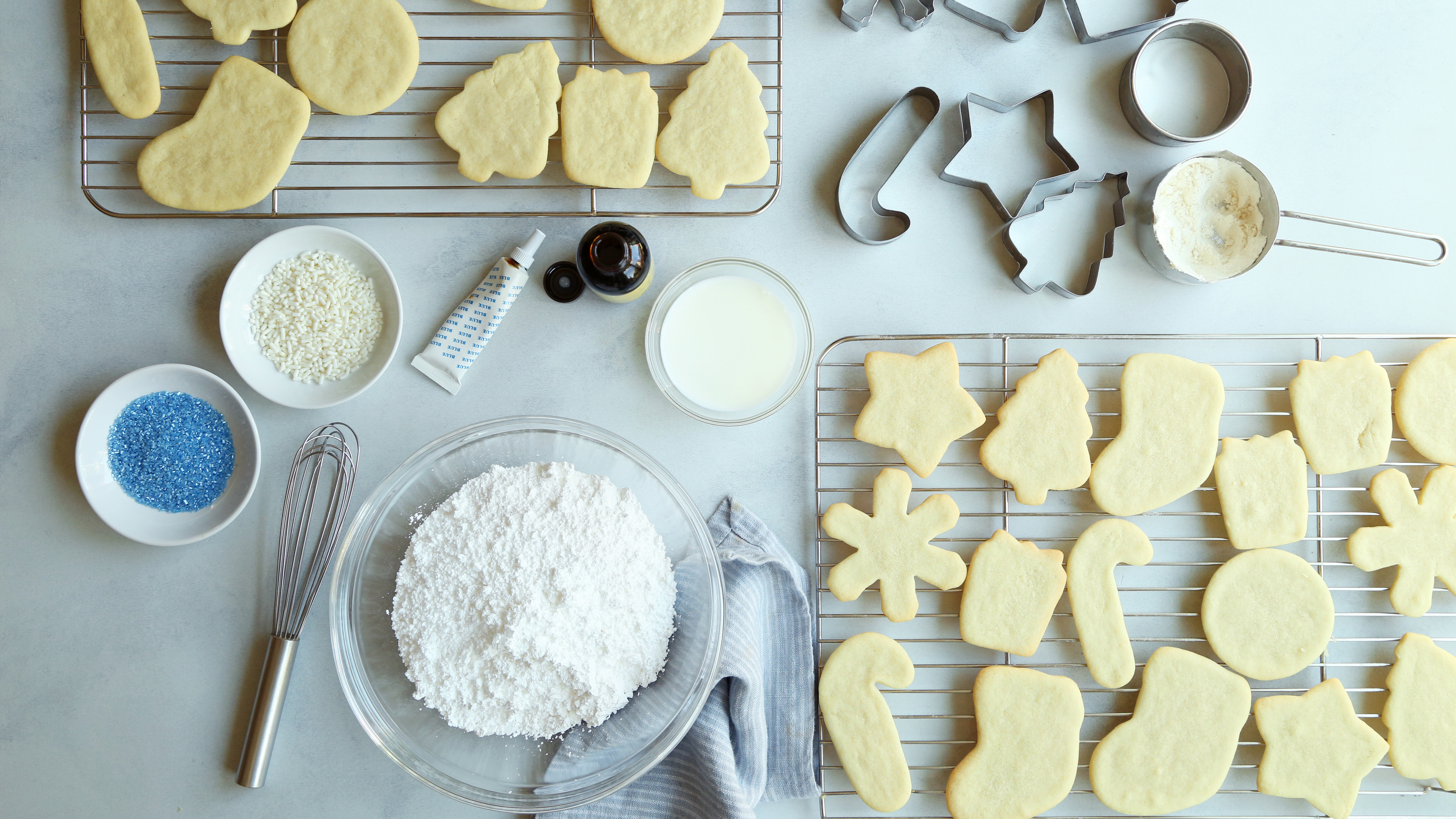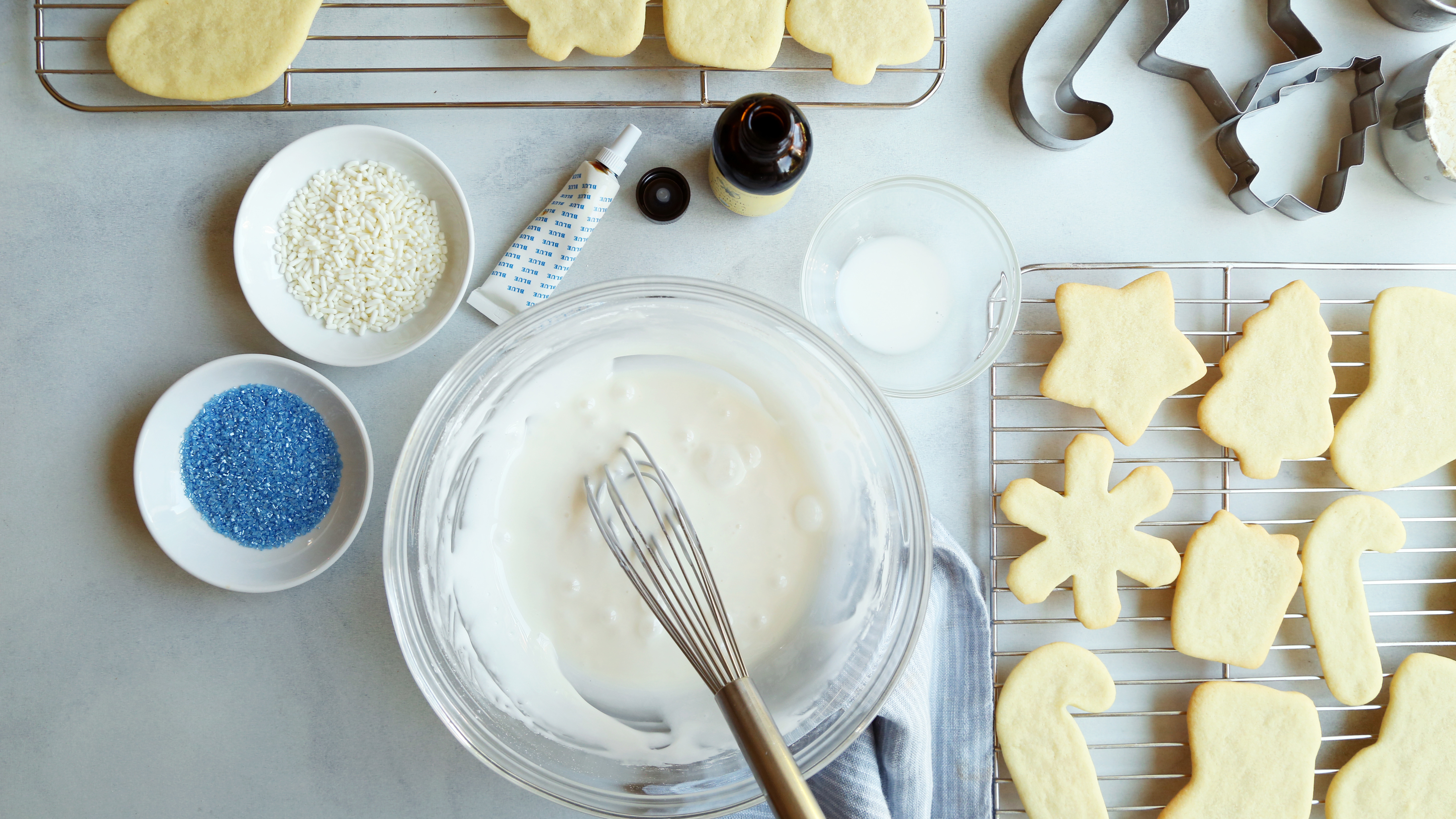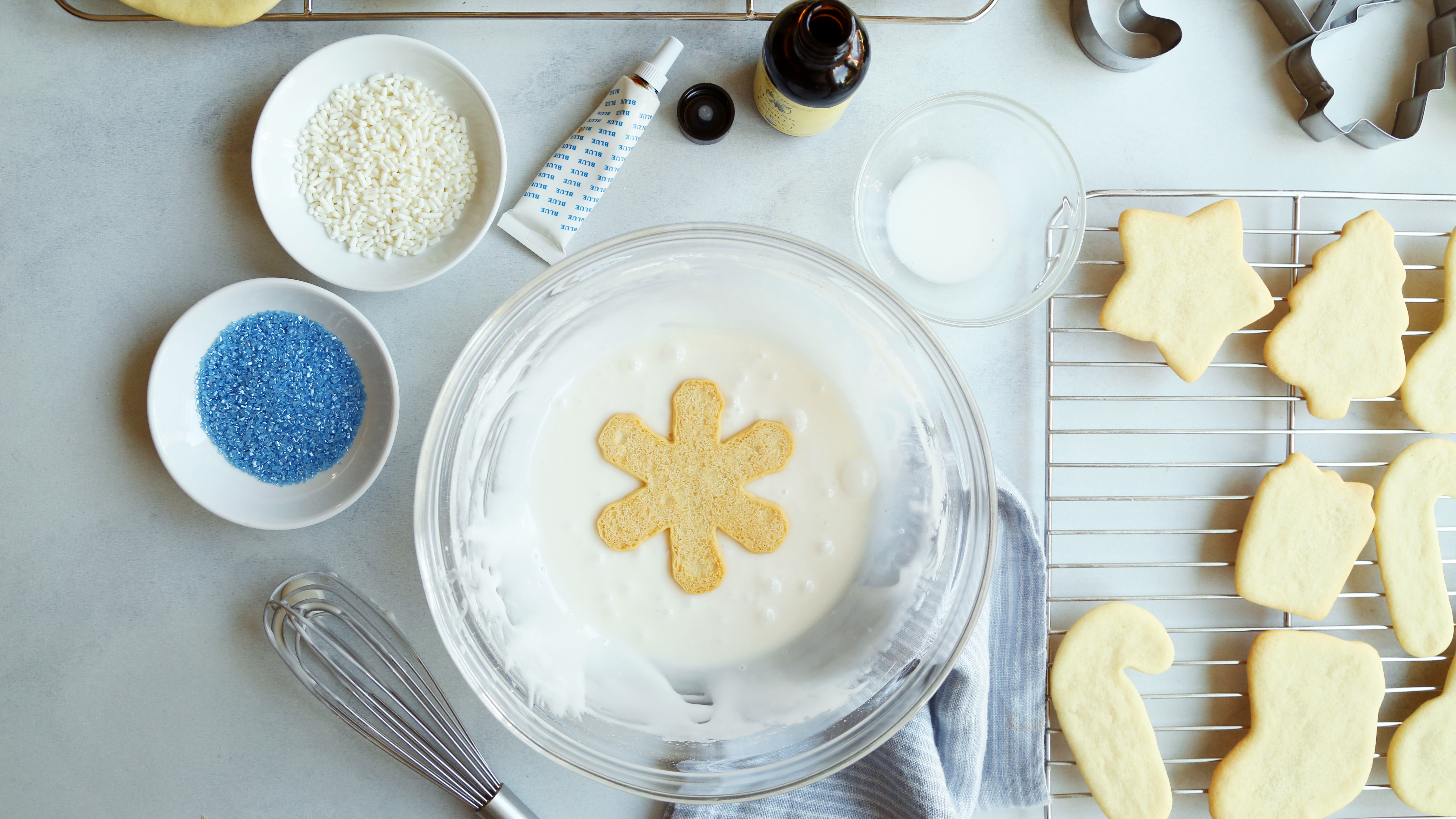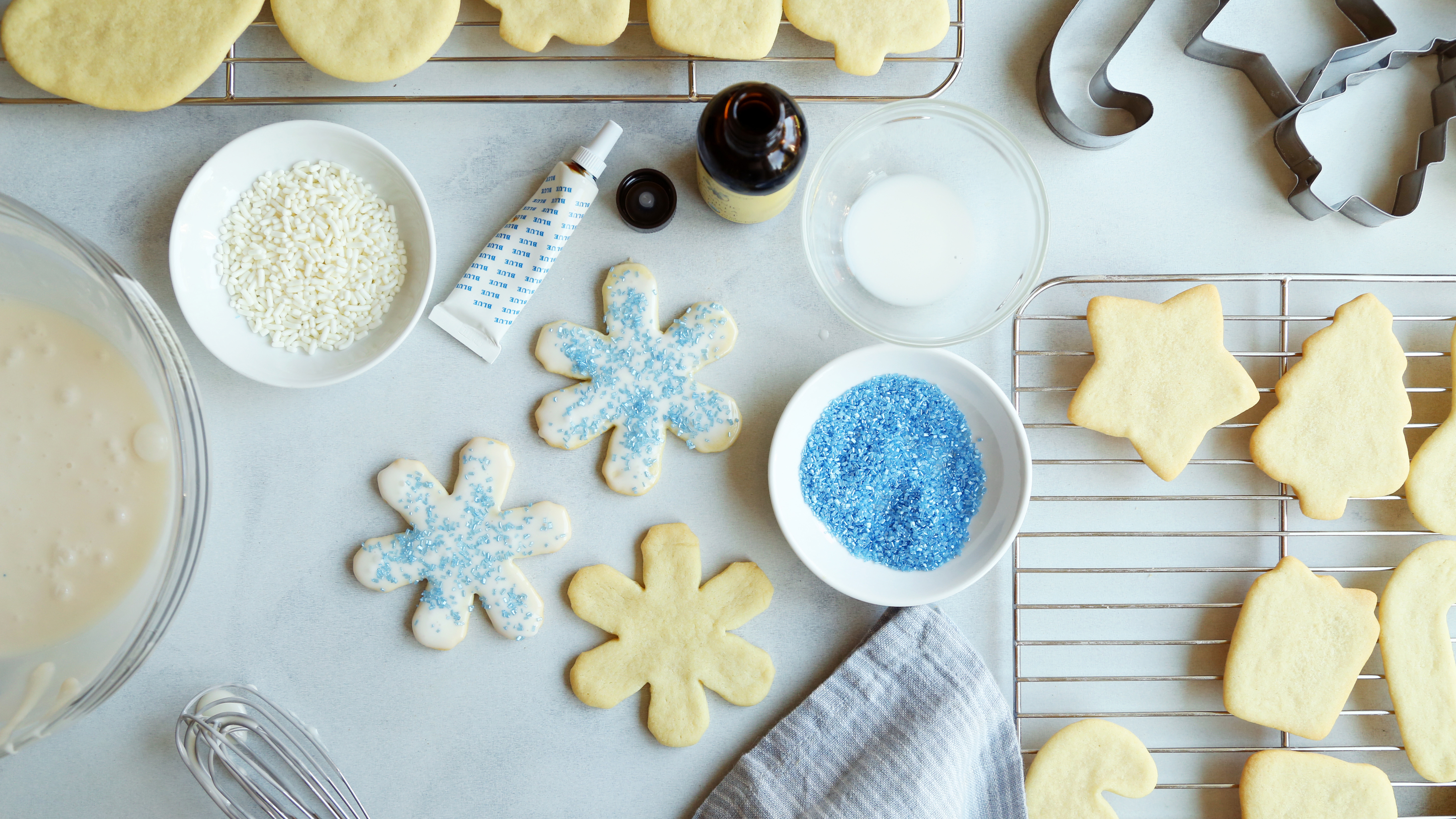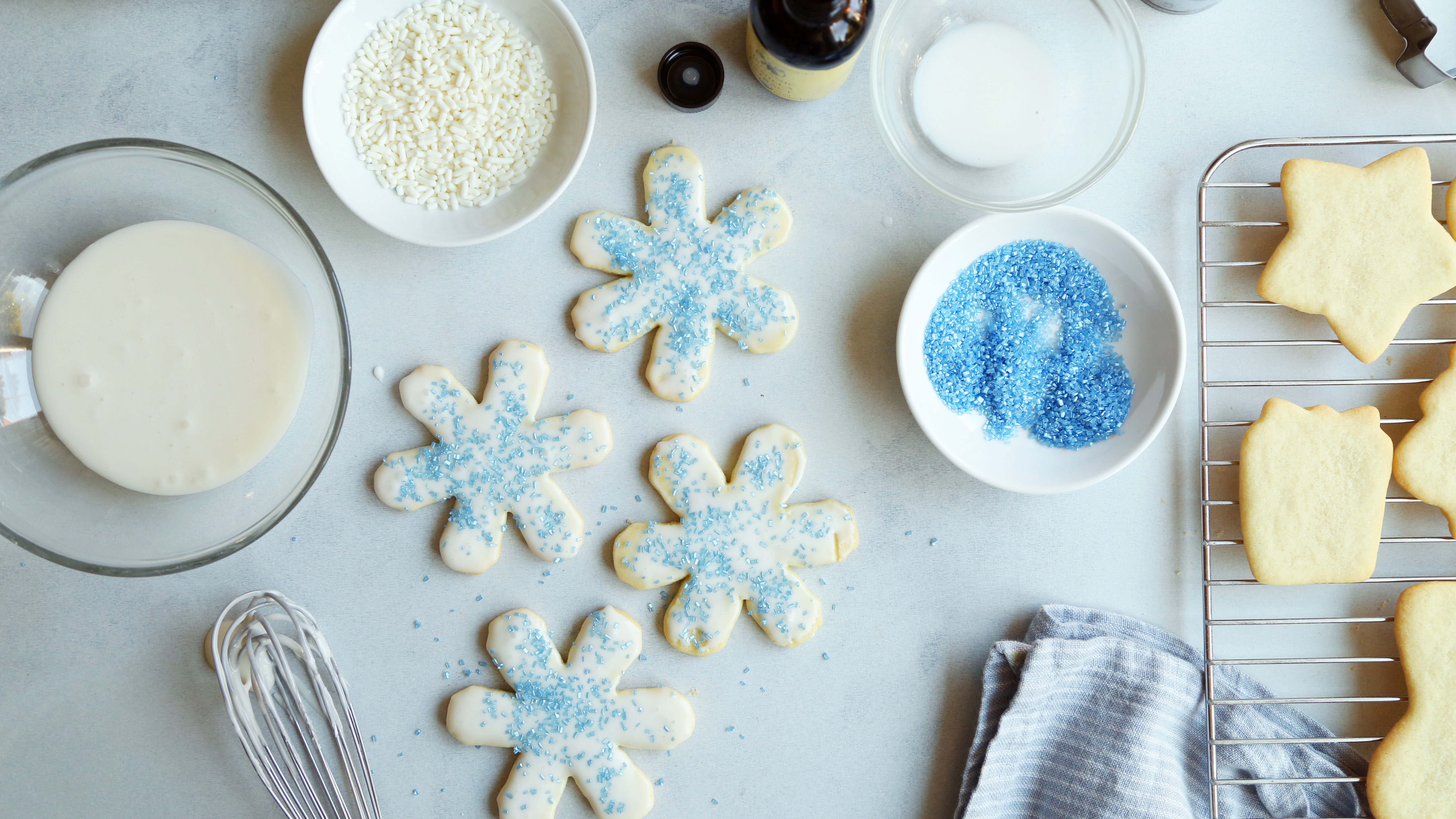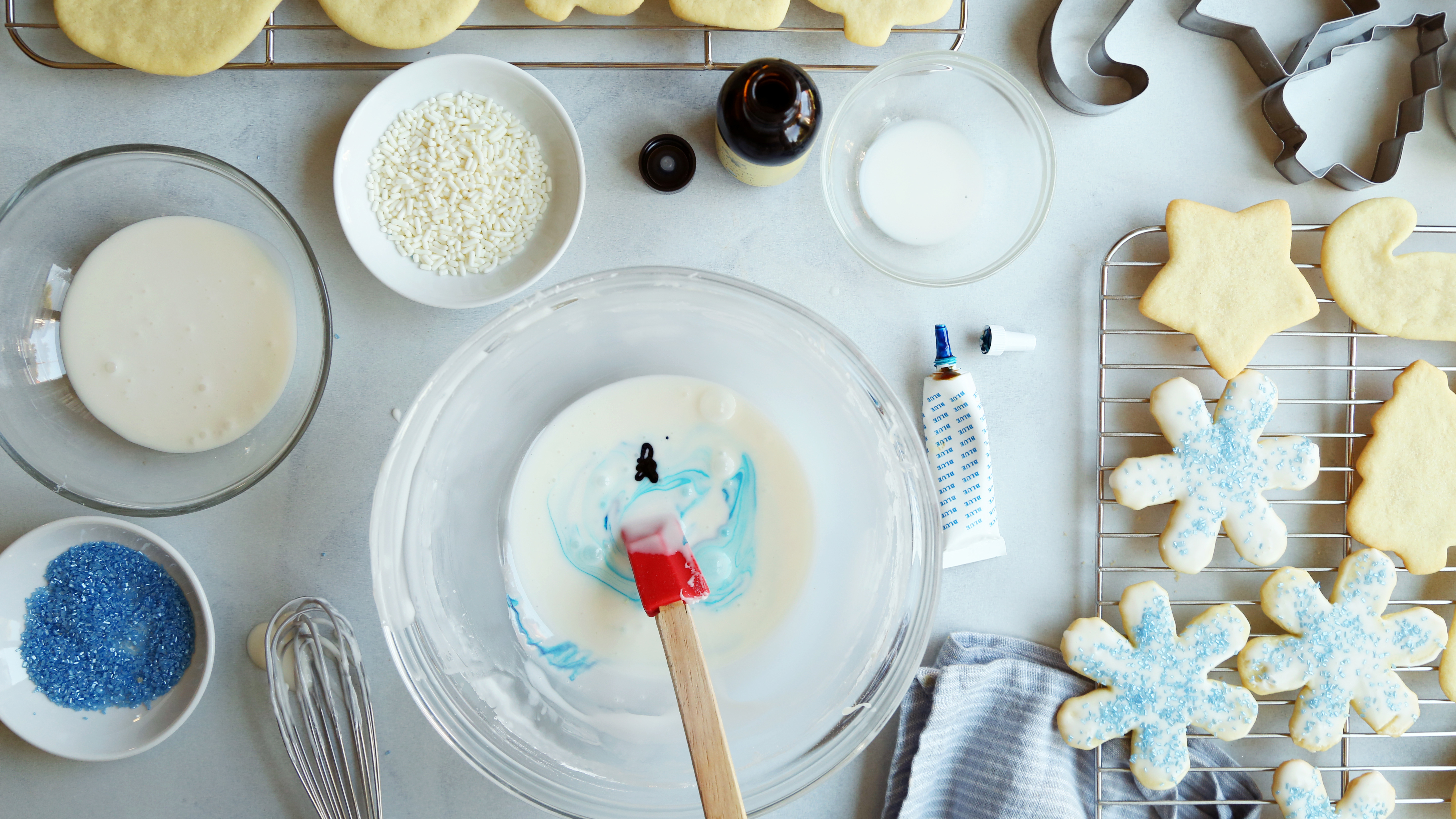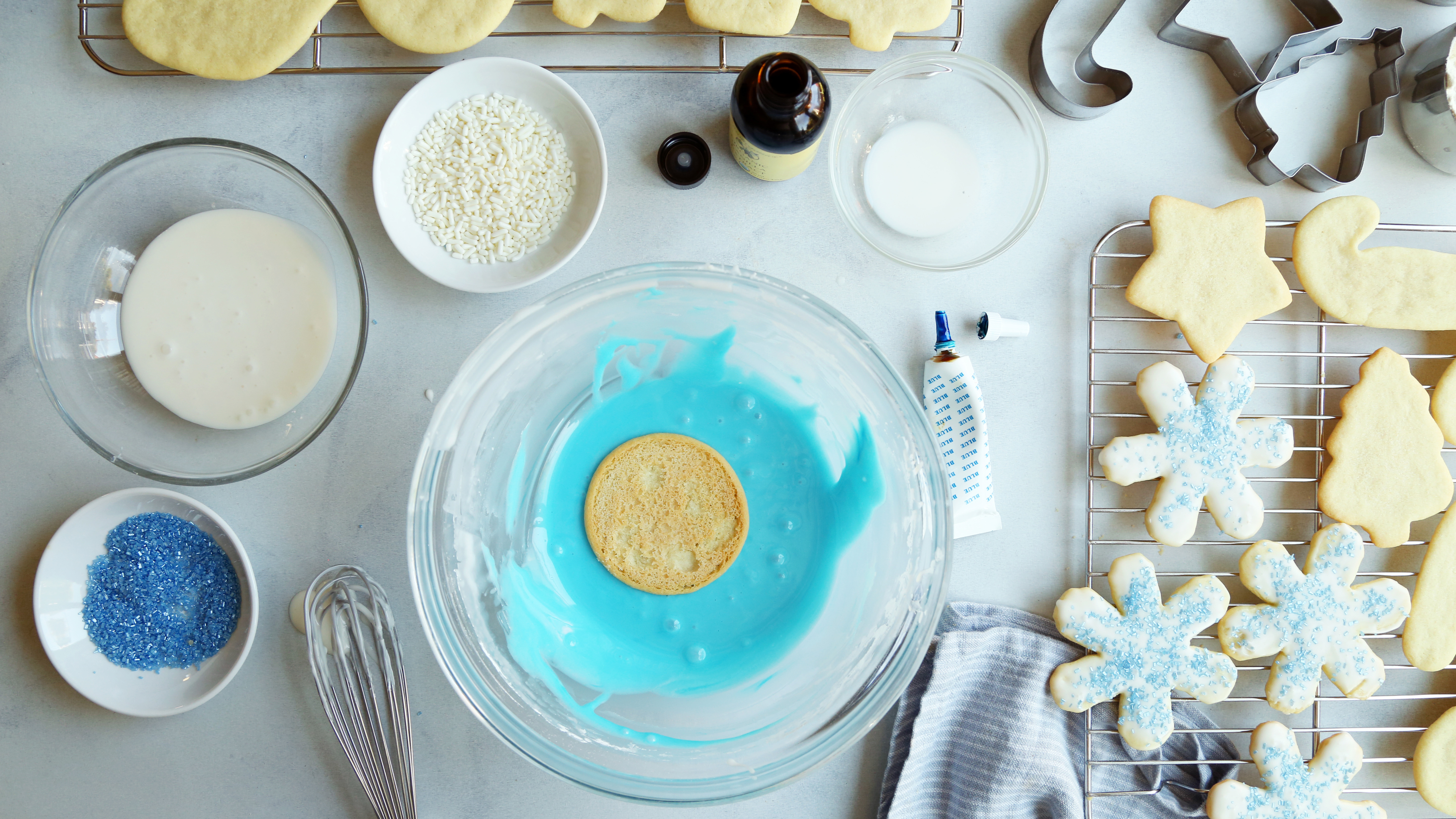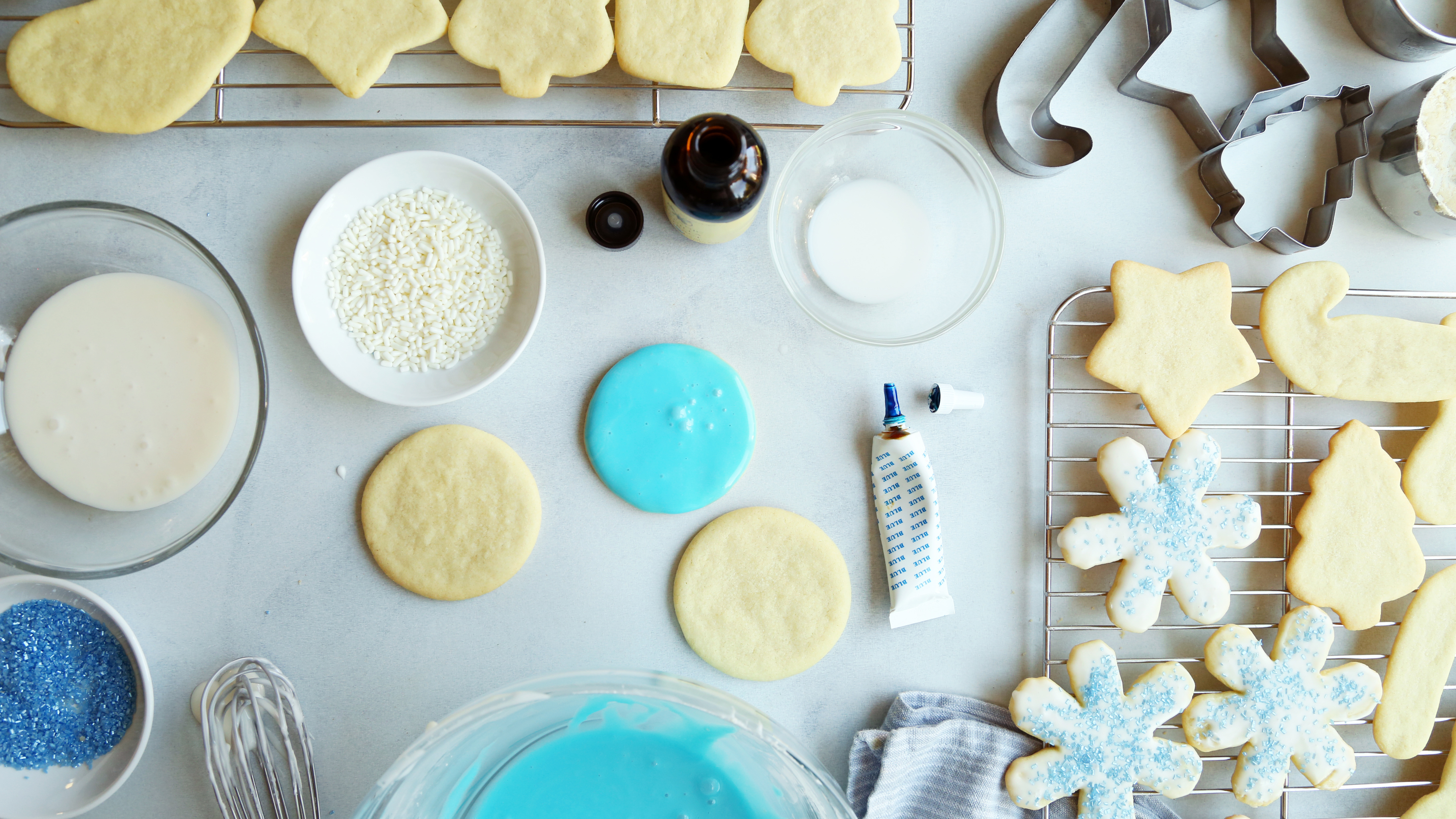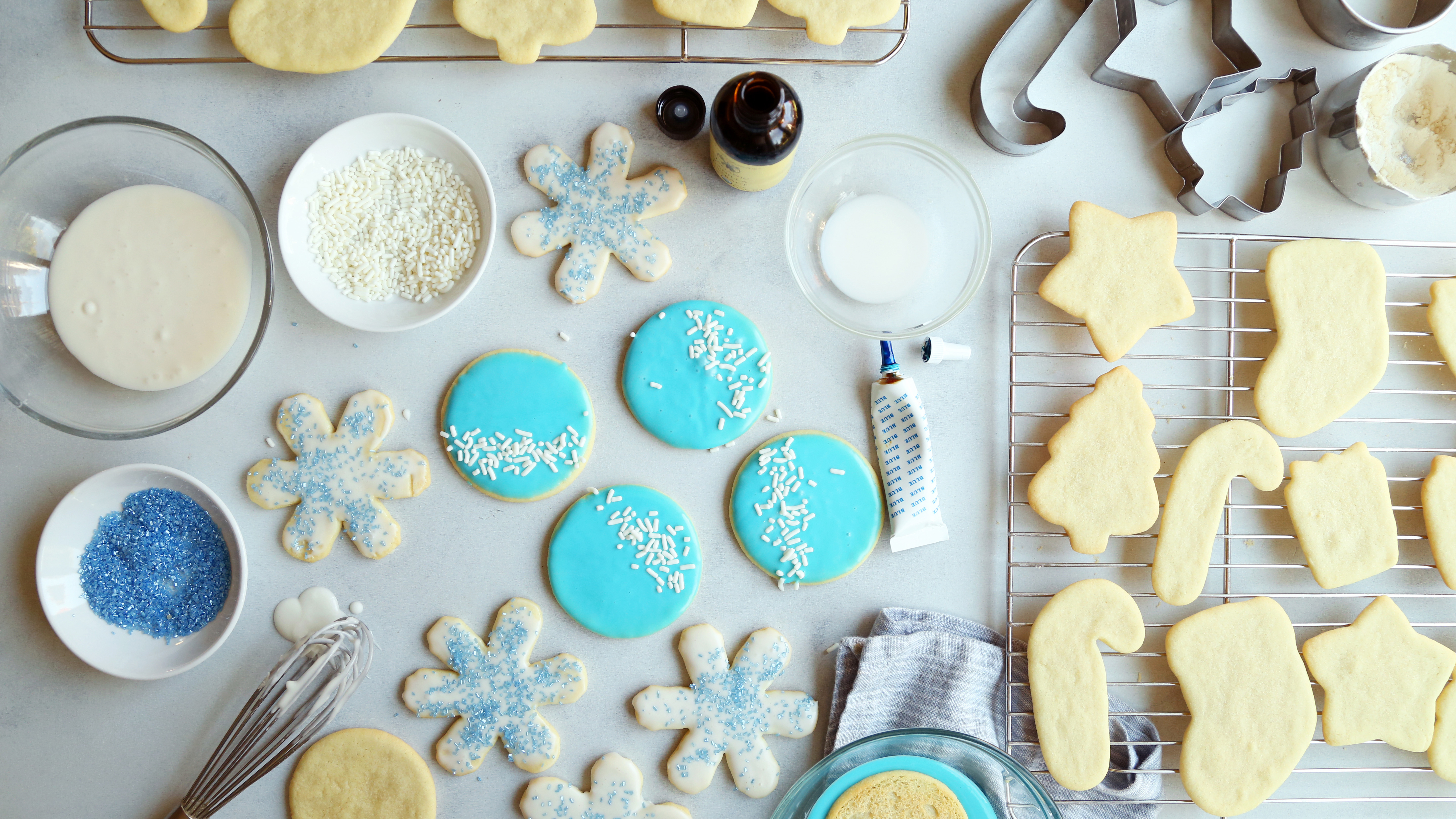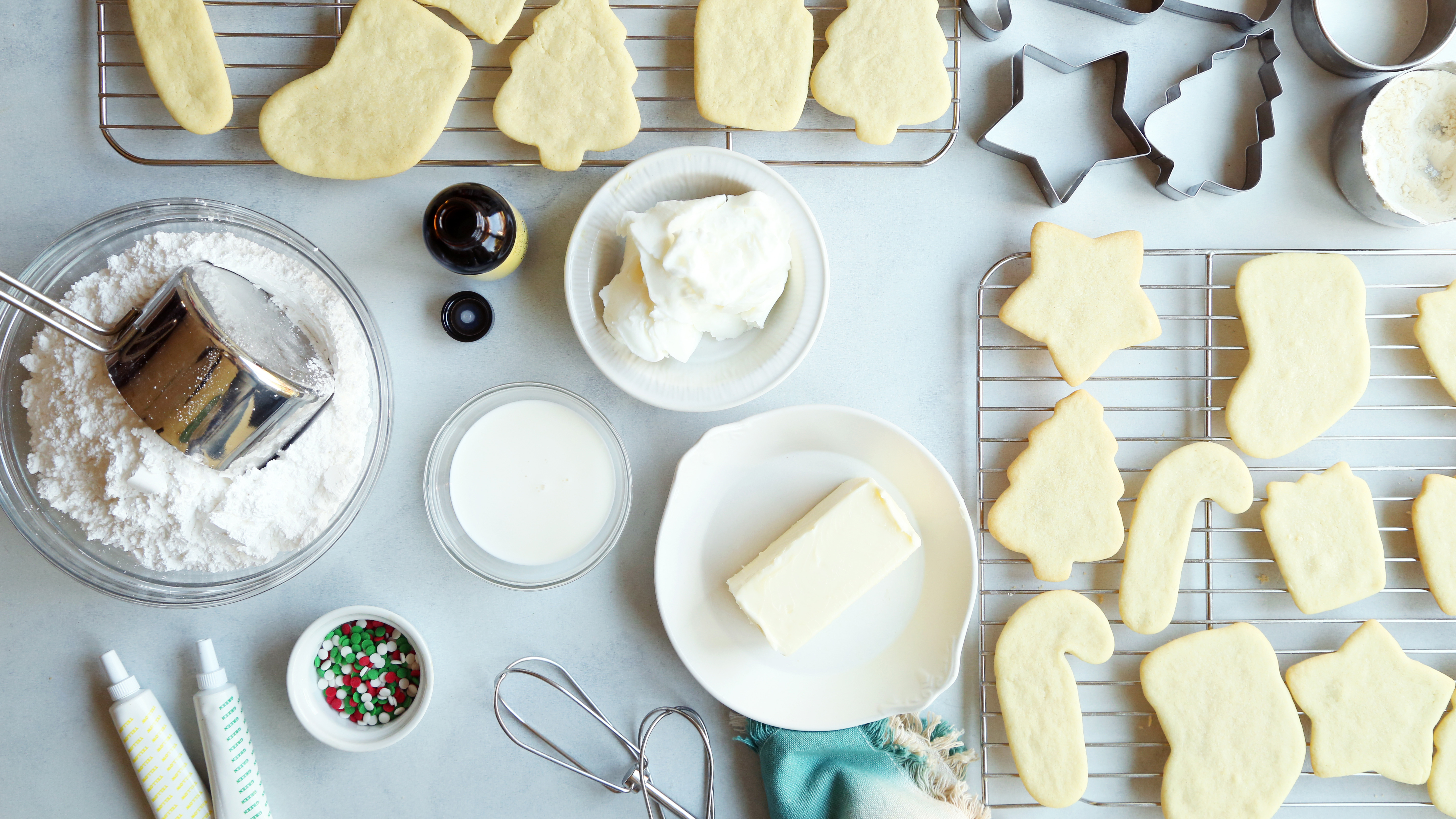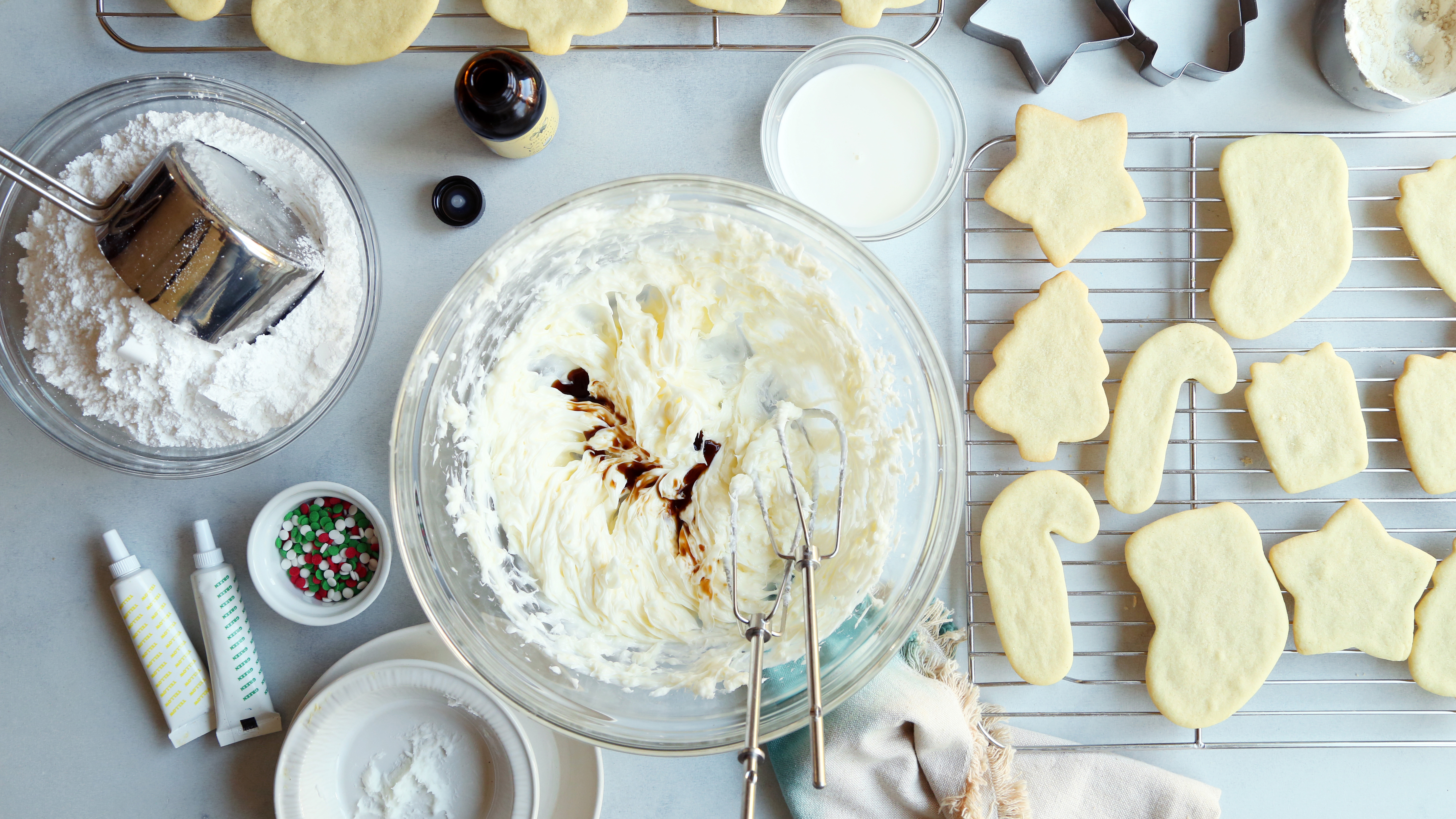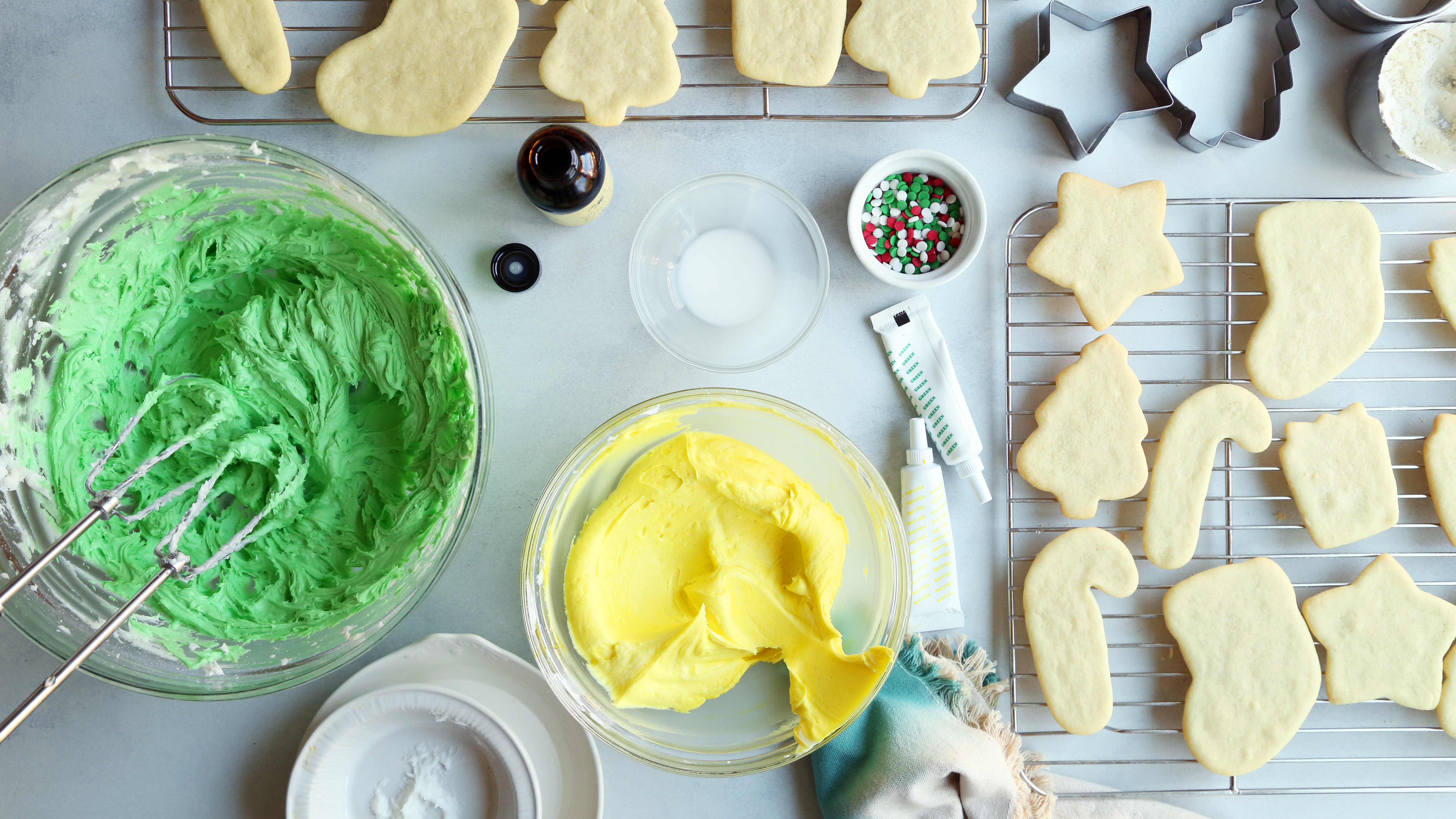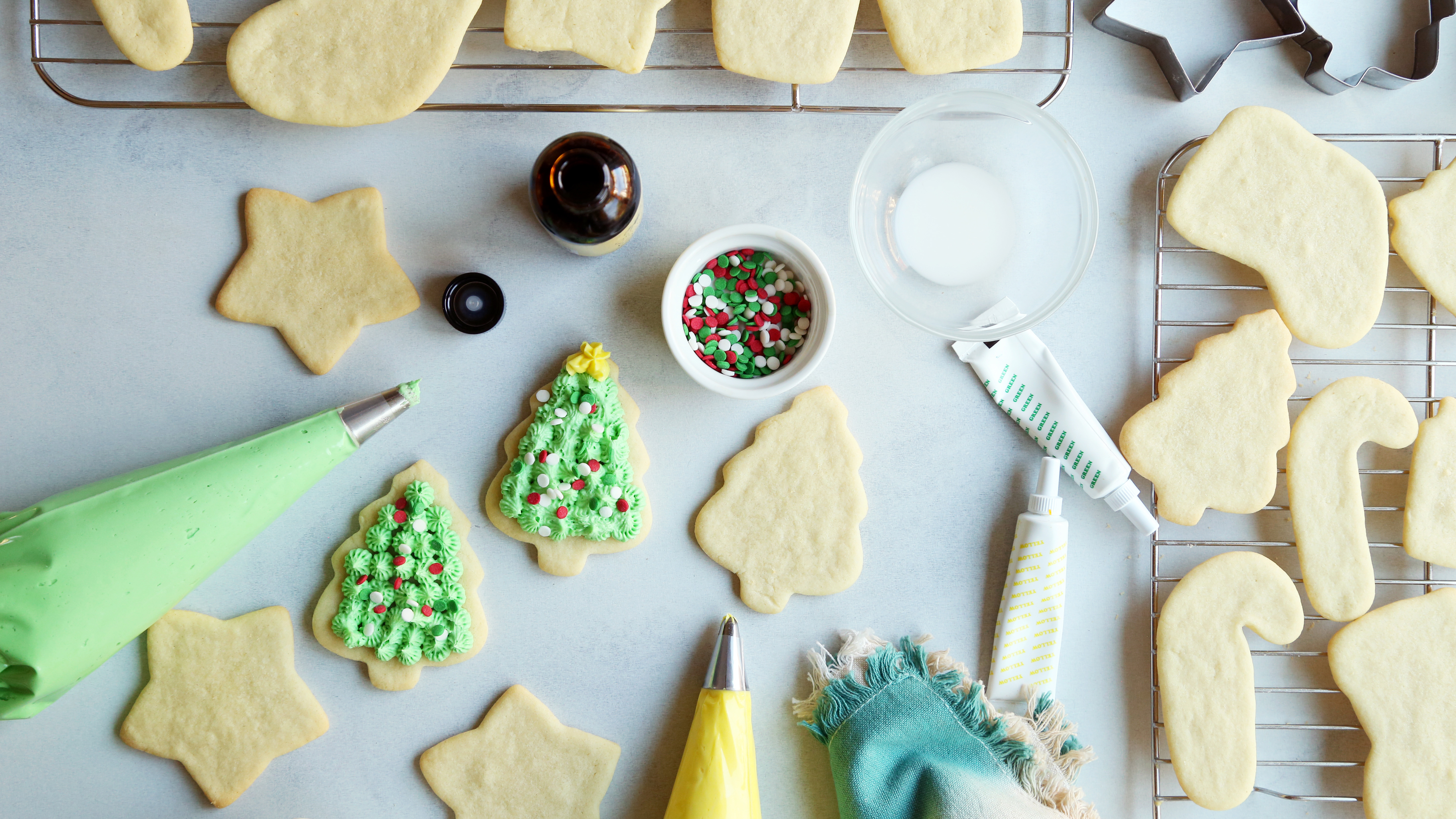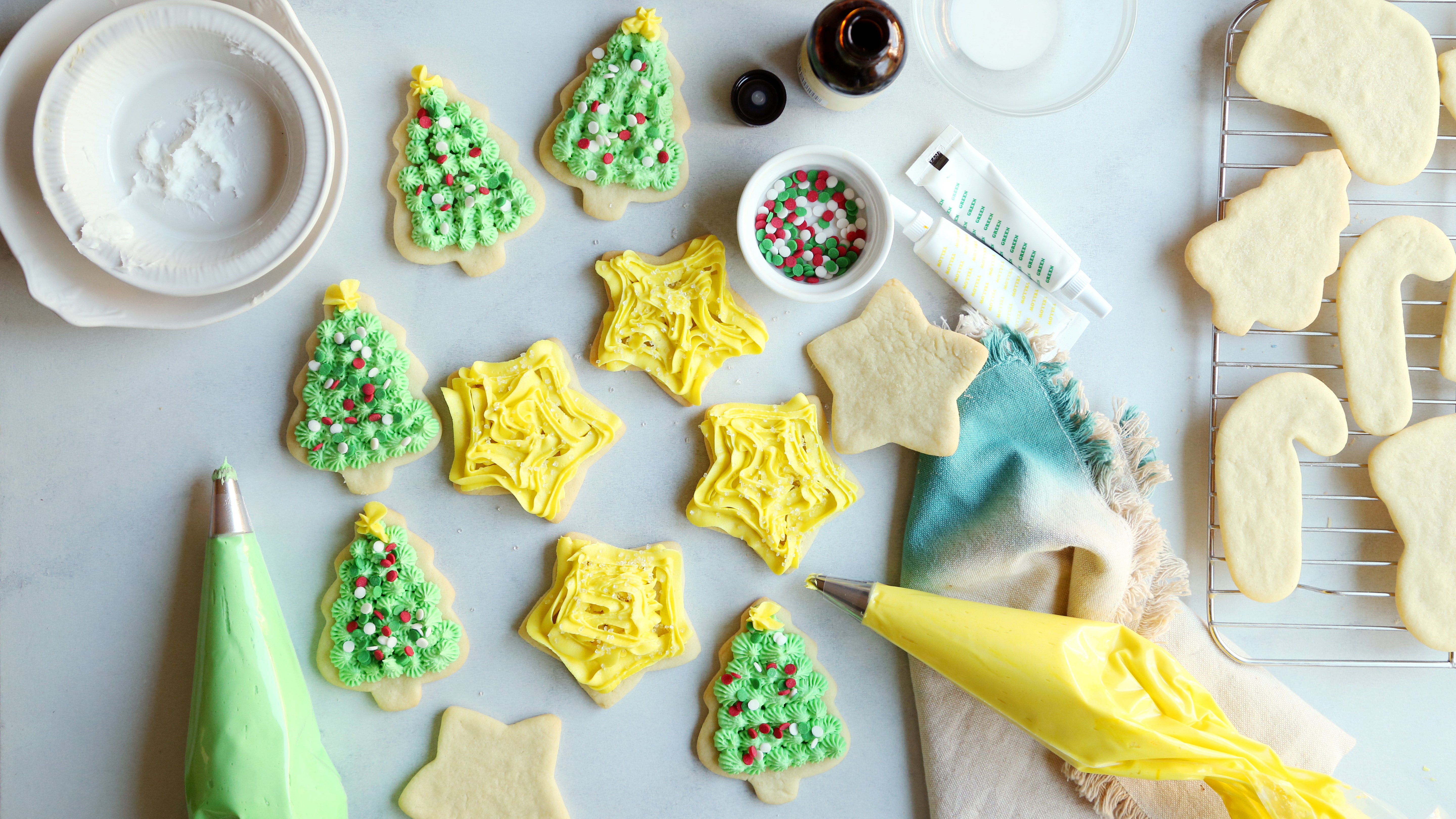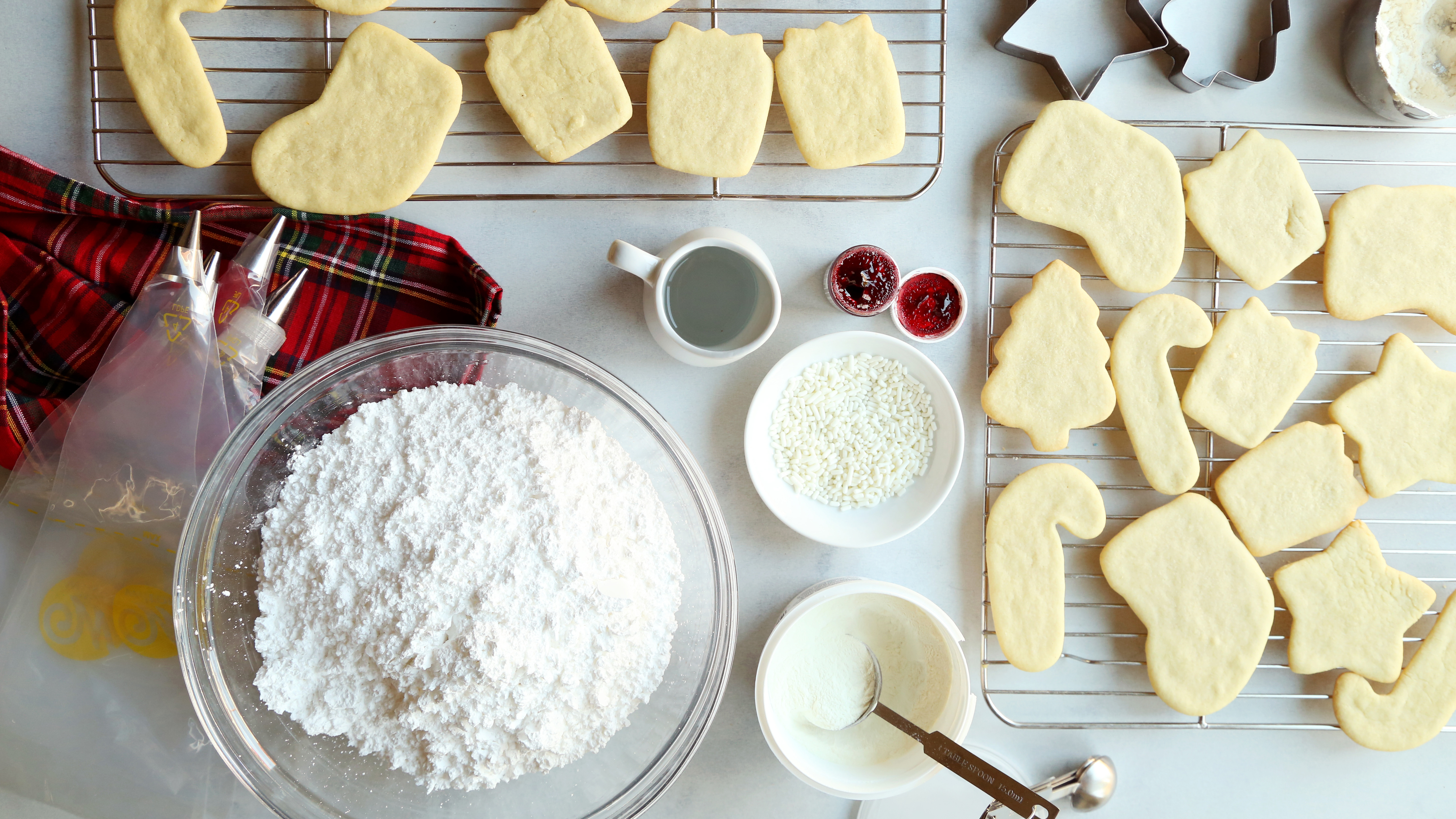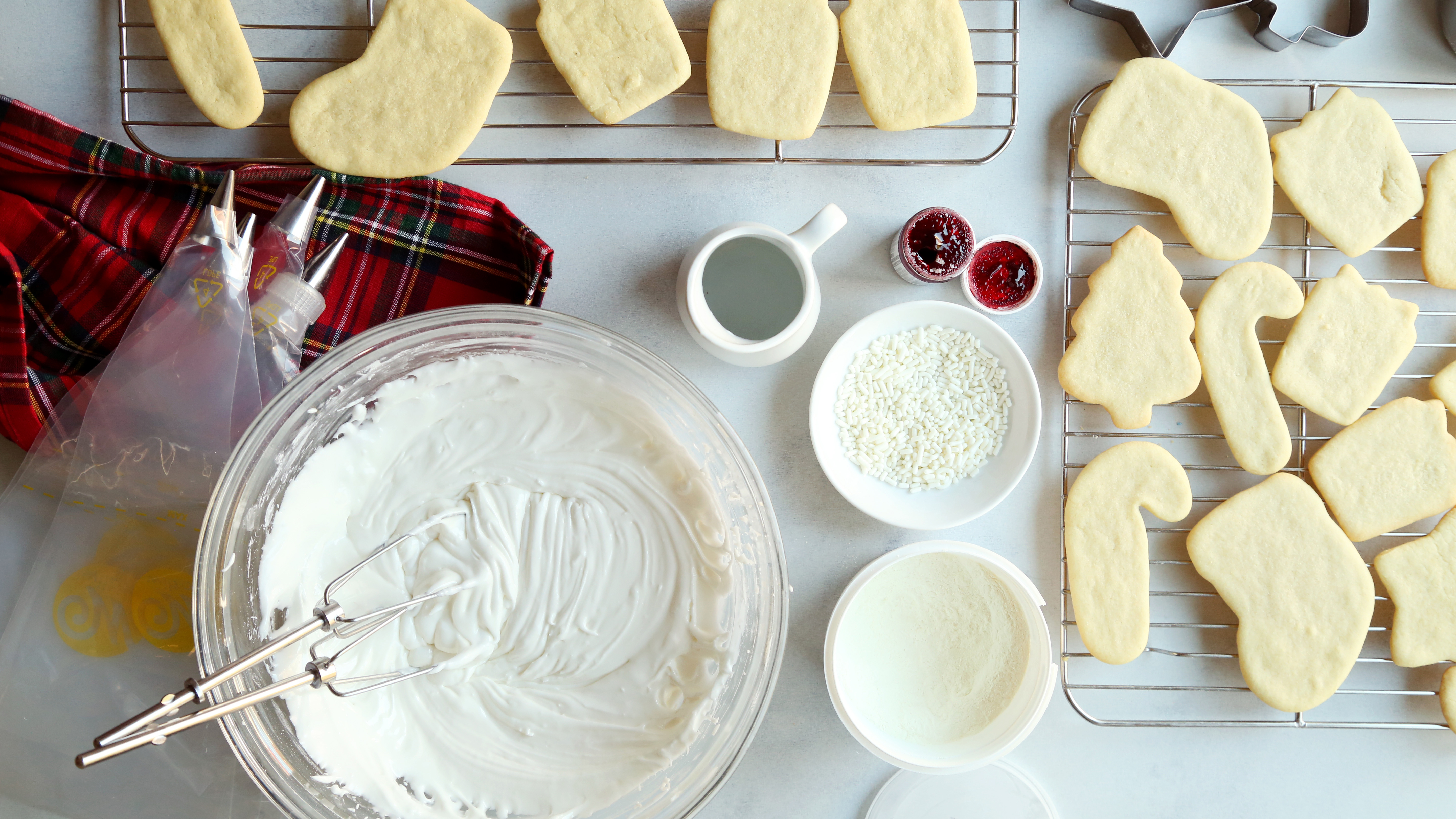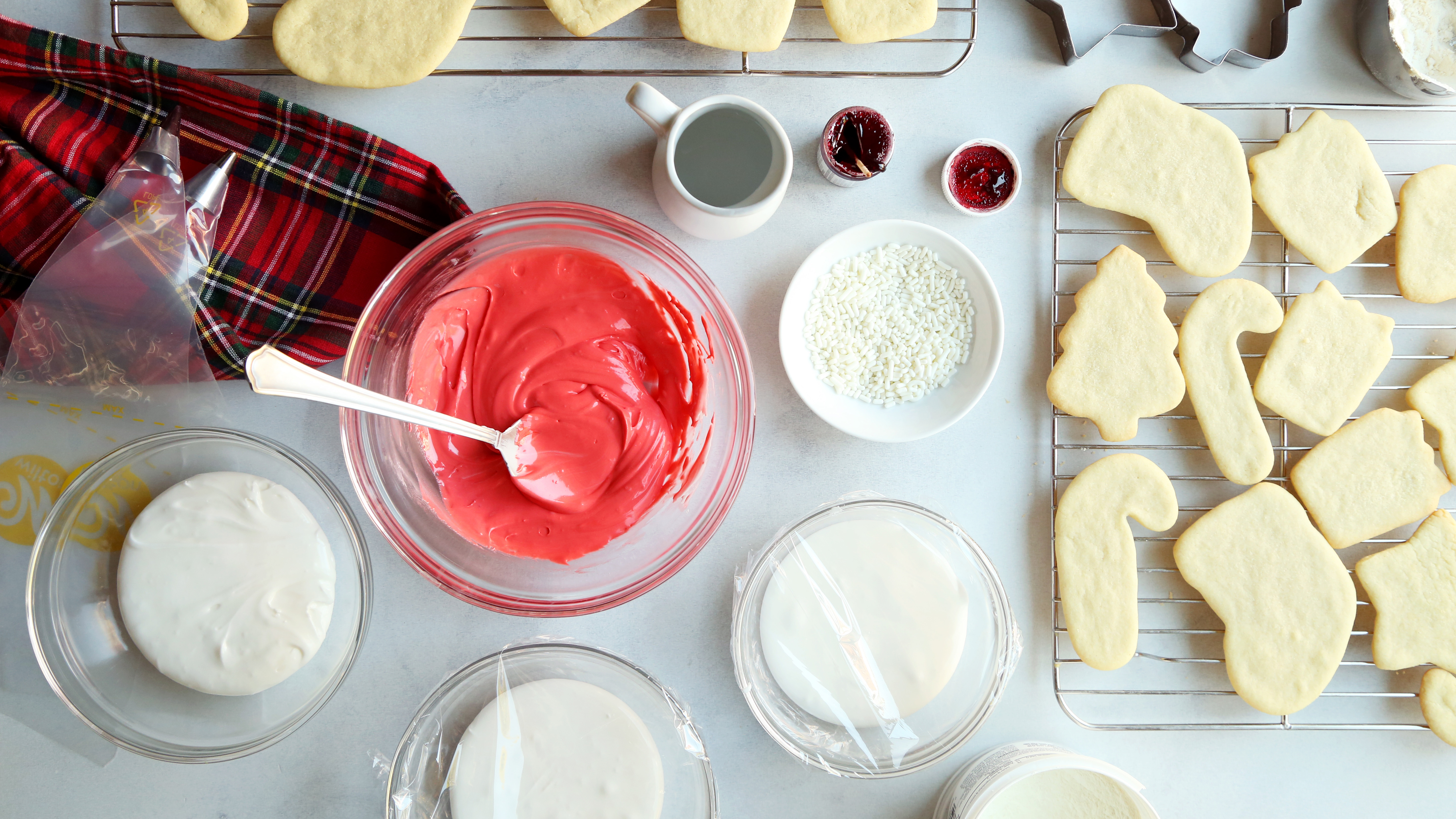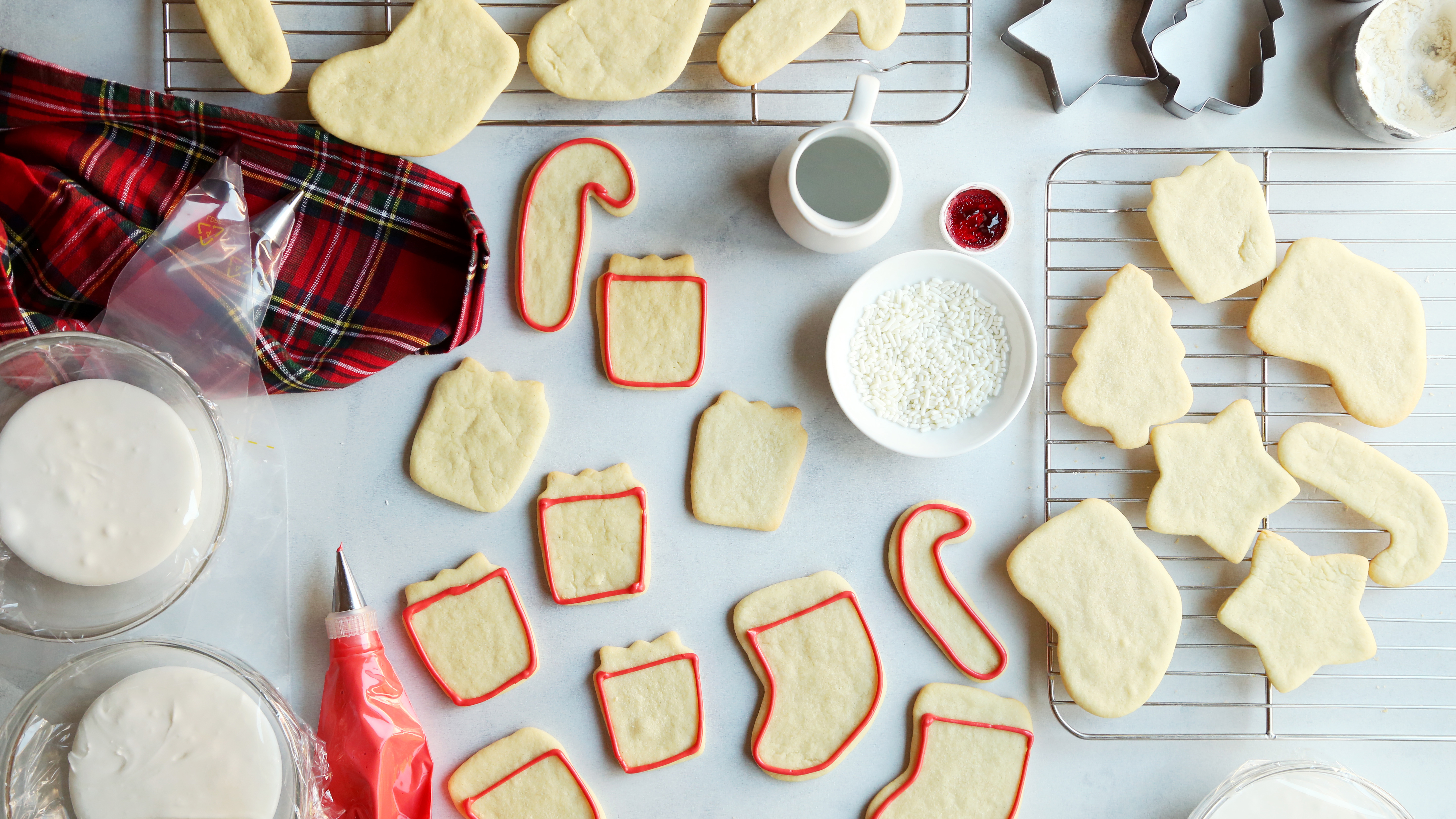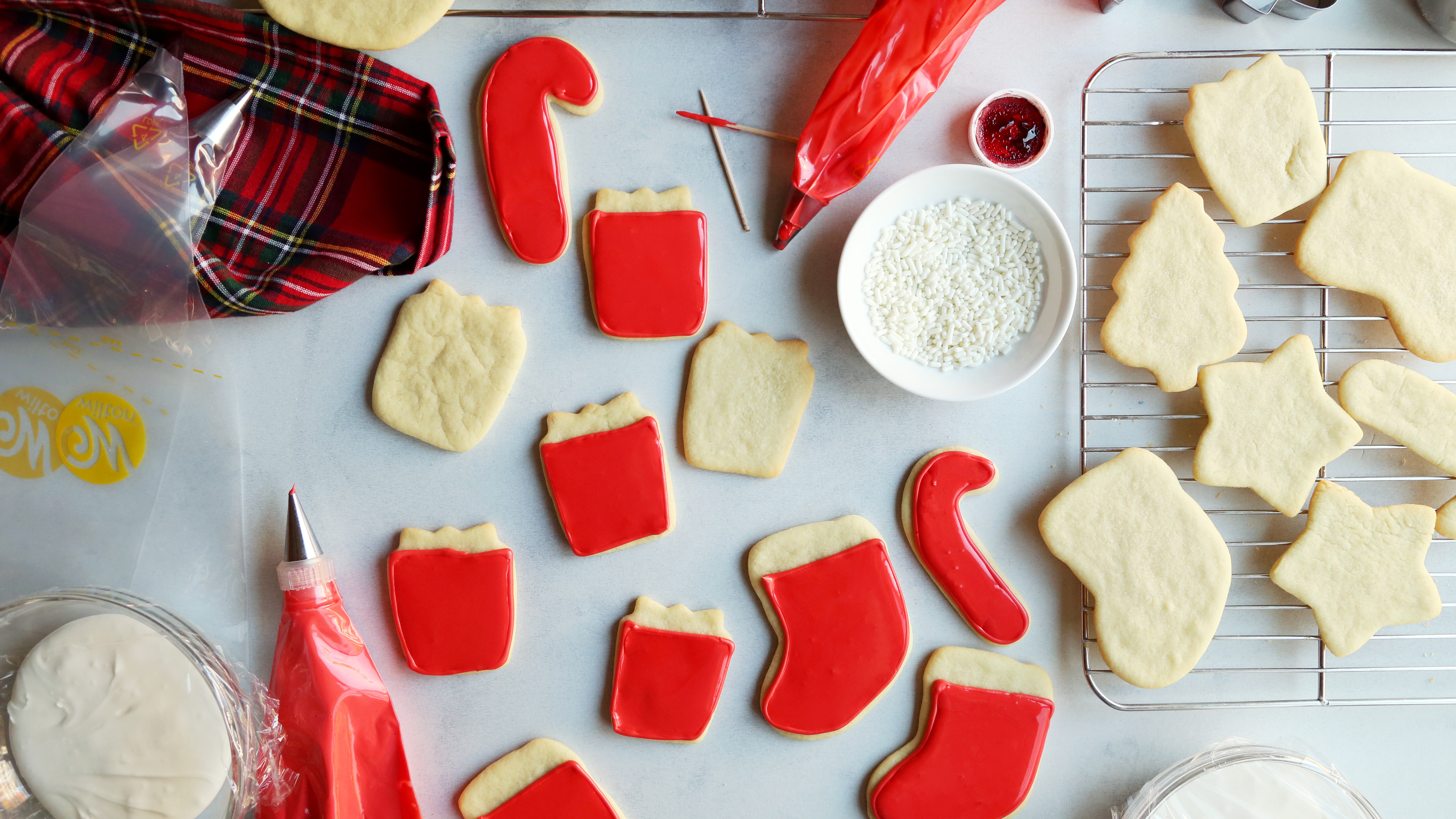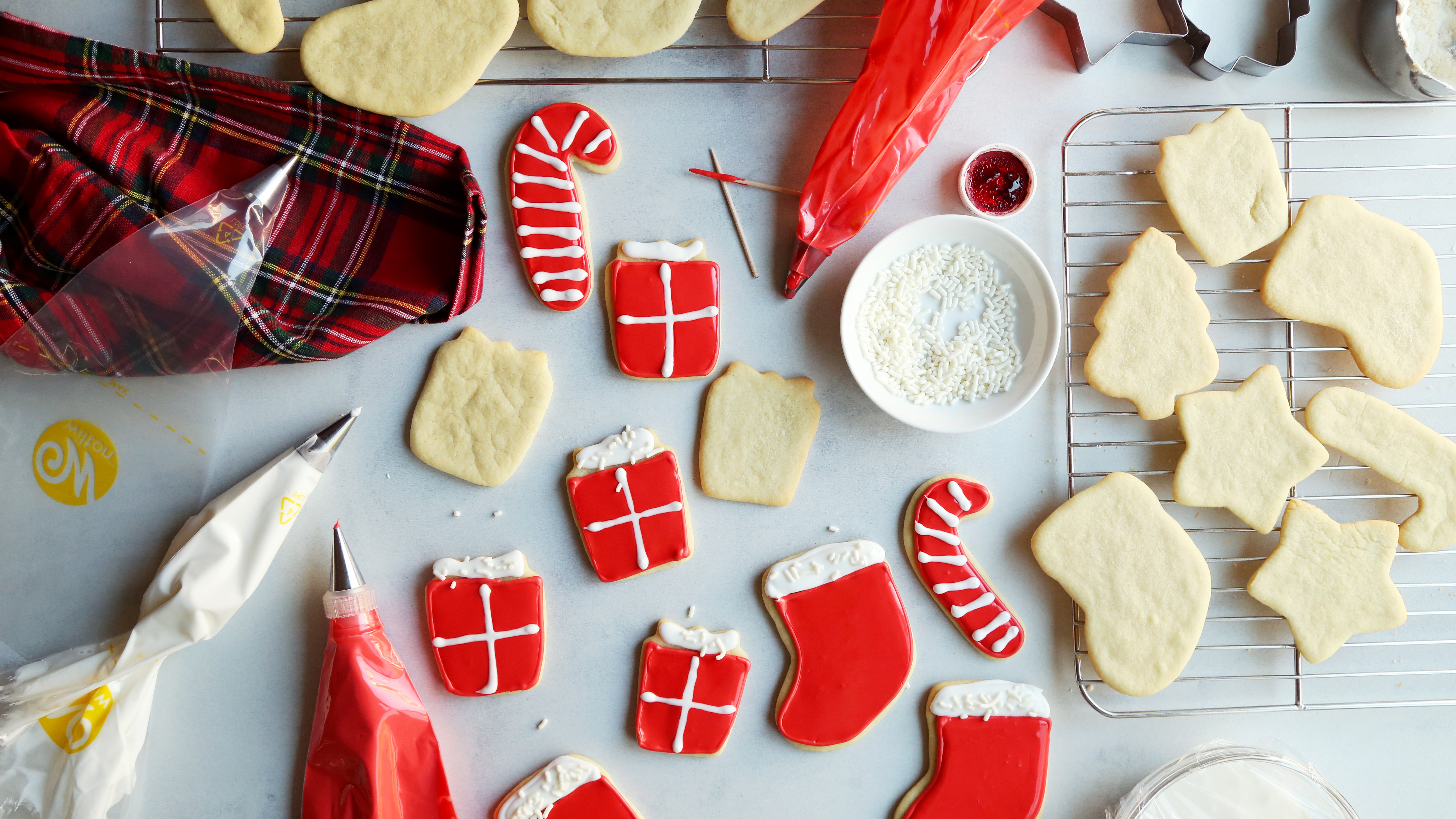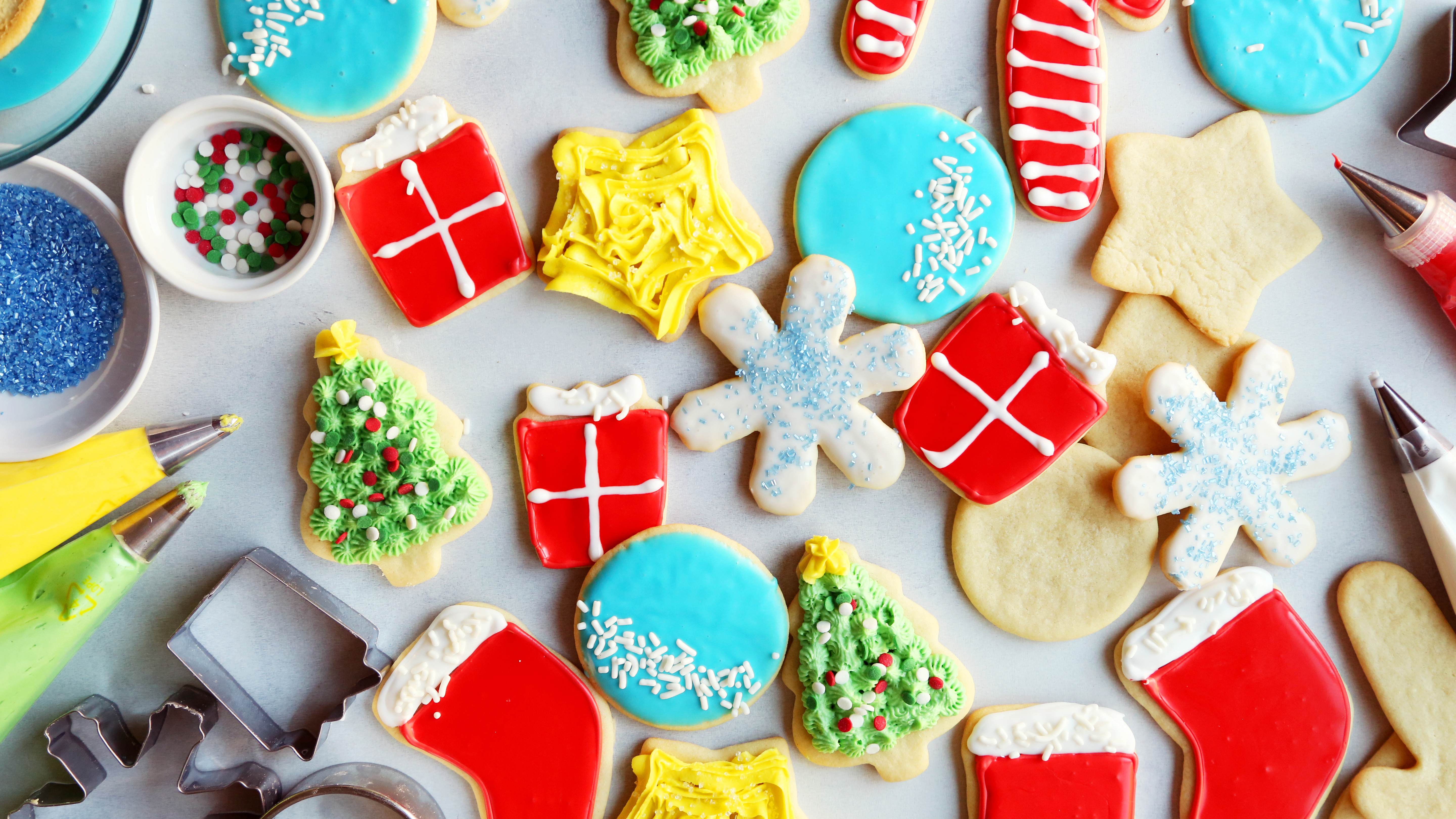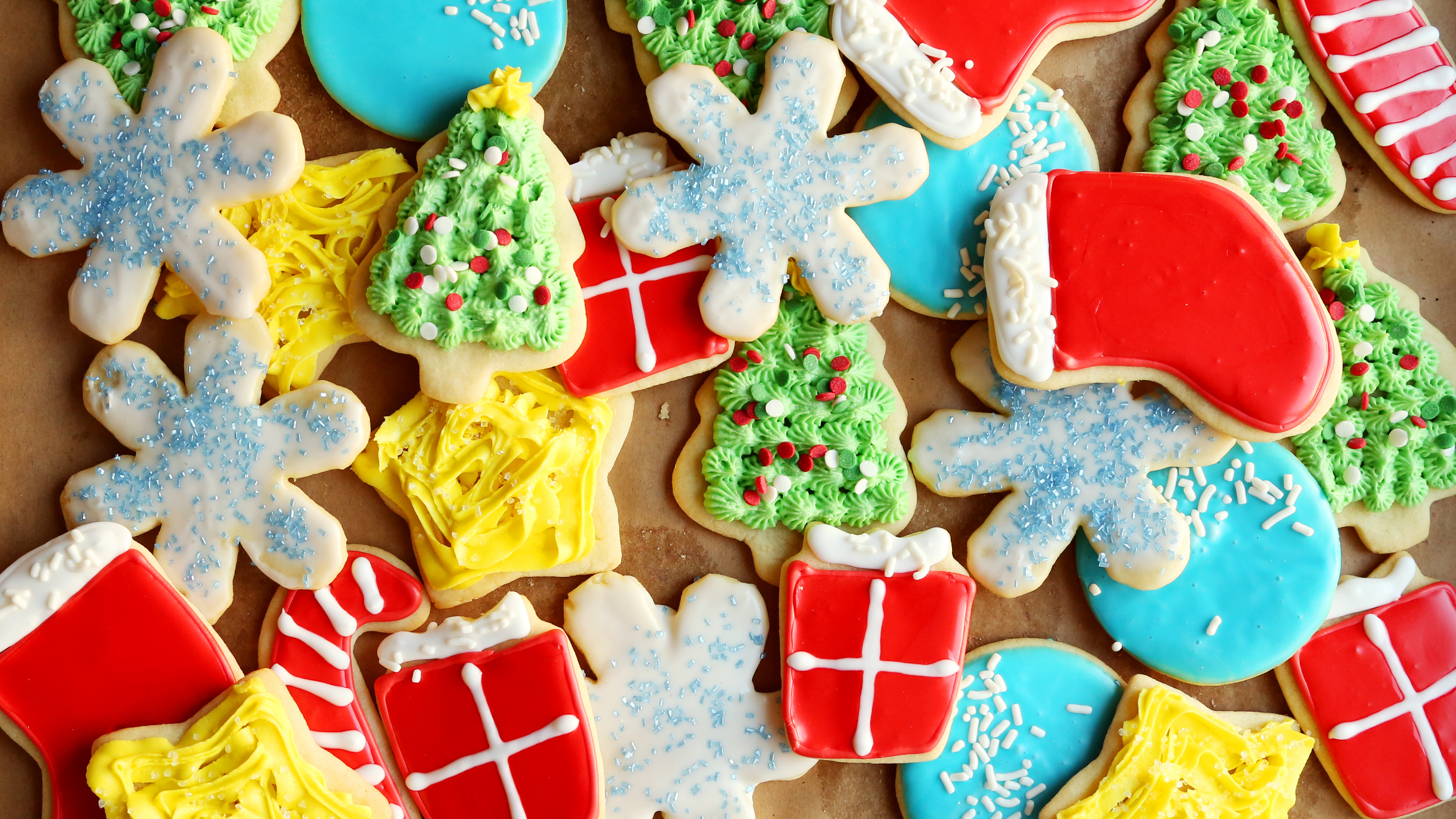The Ultimate Guide to Icing Cookies
Whether you're baking for a holiday—like Christmas, Hanukkah or Kwanzaa—or simply celebrating the winter solstice, cookie decorating is a perfect (and delicious) activity for kids and adults alike.
Whether you're baking for a holiday—like Christmas, Hanukkah or Kwanzaa—or simply celebrating the winter solstice, cookie decorating is a perfect (and delicious) activity for kids and adults alike.
Nothing kicks off the holiday season quite like a batch of freshly baked and decorated cookies. We've outlined a handy step-by-step guide to the three must-know cookie icings—traditional, buttercream and royal icing—to help you make perfect cookies this year. Each icing has its own strengths, so make sure you pick the right one for the type of cookies you want to eat. Let's dig in!
Use an old standby or try one of our fan-favorite sugar cookies. Home cooks love this recipe, because it yields soft-yet-firm cookies that "hold their shape" and are "great for decorating."
Arguably the simplest of the three methods outlined here, traditional icing is made from little more than two main ingredients: powdered sugar and milk. It's great for glazing and drizzling. Add a bit of vanilla for flavoring and a pinch of salt to cut the sweetness and you're good to go with your favorite colors.
In a large bowl, whisk together the powdered sugar, vanilla, salt and milk. Start out with four tablespoons of milk, then add more—one tablespoon at a time—until you've reached a consistency that is smooth but not too runny. At this point, if you'd like to decorate with different colors, you can divide your icing into separate bowls.
While you can spread this traditional icing onto your cookies, a method that we love is to simply dip the cookies into your icing. Place your cookies in the bowl, one at a time, then carefully remove them. Allow any excess icing to drip back into the bowl. Place the iced cookies on a baking sheet.
If decorating your iced cookies with sprinkles, nonpareils or dragees, be sure to do so quickly, before the icing dries. Otherwise they'll roll right off!
Allow the icing to set for at least 10 minutes before storing or eating your cookies. Blue sanding sugar adds a real winter-wonderland vibe to this white icing, don't you think?
Add a few drops of gel food coloring to your icing to get the tints just right. You can even try mixing or swirling different colors for maximum cookie customization.
Like before, dip the cookies into your icing one at a time. Carefully remove them, allowing any excess icing to drip back into the bowl.
Flip your cookies over onto a baking sheet or flat surface, and don't wait to decorate!
Add jimmies, nonpareils, sanding sugar or dragees to your heart's content!
Unlike traditional icing, buttercream is rich, fluffy and perfect for spreading thanks to the addition of fat. Ours contains both butter and shortening, as well as a bit of half-and-half for an extra-creamy texture.
Cream together the butter and shortening, then add your powdered sugar, vanilla, salt and enough half-and-half to give your buttercream a smooth consistency. If you'll be adding color, now's the time to divide your icing into separate bowls.
Colorize your buttercream using a few drops of gel food coloring. If you'd like, you can add one drop at a time, mixing as you go, until the color is exactly the way you want it
You can always use a knife to spread your frosting, but for an intricate and wow-worthy design, use a piping bag with decorating tips to apply your buttercream. Don't have piping bags on hand? Simply transfer your buttercream into a large zip-top plastic bag, then cut off the corner for precision piping.
Before the buttercream dries, add your favorite jimmies, nonpareils, sanding sugars or dragees. Or keep it simple and let your icing shine on its own!
Royal icing dries harder than buttercream and traditional icings, and works well for drawing precise decorations on your cookies. It's made with meringue, so it holds together better and can even act as a glue for cookie sandwiches and gingerbread houses. Instead of making meringue from scratch, our recipe uses meringue powder for a simple shortcut.
In a large bowl, beat together the powdered sugar and meringue powder with enough water to create a thick, glossy icing.
Separate out your icing, then add a few drops of gel food coloring. To get your tint just right, add one drop at a time, mixing as you go, until you're satisfied. Cover each bowl with plastic wrap or a wet paper towel to prevent the icing from drying out.
If you plan to fill your cookies in with color, the best way to proceed is to outline and then fill. First, uncover one of your icing bowls and mix in enough water so that it can be poured while still maintaining its shape. Transfer the icing to a piping bag with a small decorating tip, then draw an outline around your cookies. Let the icing dry for about five minutes before proceeding.
To fill the outline, take your icing and add a bit more water than you did the first time. You should reach a consistency that will allow you to "flood" the cookie with icing. Either transfer to a piping bag with a medium tip or use a spoon to pour the icing into the center of each cookie, tilting them to evenly distribute the icing. Use a skewer or toothpick to help remove any air bubbles that may form.
Pro Tip: You know you've got the correct consistency when you lift up your whisk or mixer and the icing falls back into the bowl within a matter of seconds.
After flooding your cookies with royal icing, wait 10 to 15 minutes before adding any additional designs, or before storing or eating.
And just like that, you've perfected three different kinds of icing for cookies! Make sure you snap a picture for your records, because these tasty treats will disappear in a flash!
Put together a platter of cookies and share with family, or box them up and send them to friends. There's no better way to spread cheer at the end of the year.
